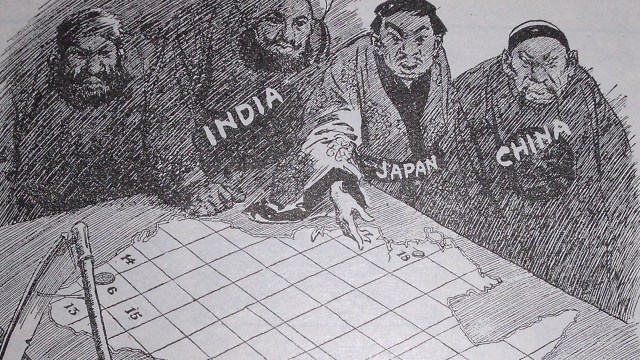392 – The Portland Arm (and Maine Leg)

n
Fixing her regional loyalty in indelible ink on skin, Julia had a map of Portland, ME tattooed on her shoulder. A comparison with the more conventional map on the right indicates that her tat clearly shows the Portland peninsula, the Fore River, Back Cove and surrounding coastline, plus a large part of the road network connecting Maine’s biggest city to its hinterland.
n
None of the places on her map are named, though. The tat might be not just an overt symbol of regional fealty, but also a covert signal to help identify similarly loyalist Portlanders – as they would be most inclined to recognise a blind map of the area. Others might mistake the map for a representation of the Arabian Peninsula.
n
In a national context, the city of Portland is usually mentioned in the same breath with its state, making it sound as if the city’s called Portlandmaine. This is done to distinguish it from Portland, Oregon. A distinction not without its practical consequences, I once found out, as the hotel room I had booked online turned out to be in Portland, OR while I was headed for Portland, ME. Some fun facts about the town once dubbed Forest City:
n
- n
- Maine and Oregon don’t have exclusive rights to the name; there are at least 16 other places in the US called Portland; as a toponym, the name refers back to the Isle of Portland in the UK.
- The Isle of Portland is the southernmost part of the county of Dorset, connected to the mainland via Chesil Beach. Its excellent natural harbour has been in use since before the Romans (who might or might not have called it Vindelis), its limestone was quarried for Buckingham Palace and St Paul’s Cathedral in London. The novelist Thomas Hardy called it The Gibraltar of the North, for its similarity in physical geography.
- The southernmost point of Jamaica is also called Portland Point.
- In the original Portland, a taboo rests on mentioning rabbits. Polite conversation generally steers clear of the subject, but if unavoidable, they are called underground mutton. The bunnies (another euphemism) were feared by quarrymen, as they would (literally) undermine the stability of their workplaces.
- With a population of only 65,000, Portland is the biggest city in Maine. Its namesake in Oregon, on the other side of the country, was actually named after it. The Oregoners obviously were desparate for East Coast respectability; an alternative suggestion would have made the city’s name Boston, Oregon.
- The first settlement of the Portland, ME area was in 1623 by Christopher Levett, who called it York, after his hometown. This first “New York” of the New World was lost without a trace; the name survives in York County, adjacent to Cumberland County, which contains Portland. The first permanent settlement was called Casco (1633), later renamed Falmouth (1658), an expansion of which was to be called Portland (1786).
- The city’s motto Resurgam (Latin for “I will rise again”) refers to the rebuilding of the city after no less than four fires that devastated the city, one of which was the Great Fire of 1866, started on Independence Day (July 4), most likely by a firecracker. Killing only two but destroying 1,800 buildings, the fire rendered almost 10,000 people homeless. It was the greatest fire ever in America until the Great Chicago Fire (1871).
- Portland was ranked #1 in Forbes’s Most Livable Cities index for the year 2009.
n
n
n
n
n
n
n
n
n
This is not the first example on this blog of someone exhibiting the affection for their hometown by a map tattooed on their body. Here is an arresting map of Hanover: #126.
n
Many thanks to Christian McNeil for sending in this map, found here at the Strange Maine blog. As the entry shows, Julia not only has a map of Portland on her right shoulder, but also a map of Maine on her right leg.
n





